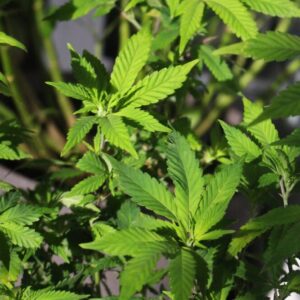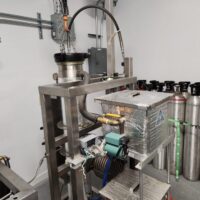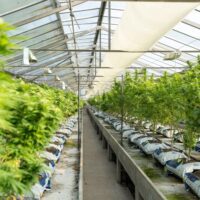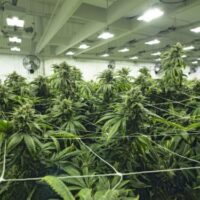NFPA 420 For Cannabis: What’s Coming

Update (June 2024): NFPA 420 for Cannabis
In June 2024, the NFPA Standards Council approved the NFPA 420 draft to enter the Fall 2026 revision cycle and opened the standard for public input until January 7, 2025.
National Fire Protection Association & NFPA 420
The National Fire Protection Association (NFPA), which turned 125 years old in 2021, is a non-profit organization that provides public education and fire safety guidance and standards across a seemingly endless array of situations*. One of these is NFPA 420, which is the upcoming standard for cannabis facilities. (We love that the NFPA has a sense of humor about this!)
*we’re not kidding about the length and breadth of the areas NFPA governs. If you’re curious, look at the NFPA’s full list.
Ben, our principal engineer, sits on the committee that is developing the NFPA 420 standard. He’s a self-described code nerd who reads these things for fun. Fortunately, he’s also great at explaining what regulations mean to those of us who don’t share his unusual hobby.
What is NFPA 420 for Cannabis?
NFPA 420 will help cannabis producers by creating standards that can be adopted by jurisdictions across the country. The 420 standards will address all aspects of fire and life safety in cannabis cultivation and extraction facilities from grow ops to post extraction. The standard will go through several drafts and periods of public comment before being adopted by the Standards Council. We encourage industry professionals to track the drafts and participate in the public comment period.
When released, the standard will address important life safety considerations like dust mitigation in grow operations, where dried plant material can be an explosion hazard; blended solvent use in extraction facilities, CO2 enrichment, and other fire and life safety concerns. The final version will be available for jurisdictions across the country to use as a basis for their codes. We believe this will help to standardize the industry, making it easier for cannabis entrepreneurs to expand their businesses across county and state lines.
The importance of NFPA 420 for Cannabis Facilities
As with all building codes and standards, the NFPA standards are designed for the public good. This includes the safety of life and property. The standard will cover areas including building construction, fire suppression systems, ventilation, electrical systems, and emergency procedures. It will outline requirements for the design, installation, and maintenance of various systems within cannabis facilities to reduce the risk of fires, explosions, and other potential hazards.
Safety Concerns in Cannabis Extraction Facilities
Cannabis extraction processes often involve the use of volatile and flammable C1D1 and C1D2 solvents such as butane and ethanol, making fire and explosion risks significantly higher. NFPA 420 will address these risks by outlining specific requirements for ventilation systems, hazardous material storage, and emergency shutdown procedures. By adhering to these guidelines, extraction facilities will minimize the chances of accidents and create a safer working environment for employees.
Furthermore, compliance with NFPA 420 can have a positive impact on the reputation and credibility of your extraction businesses. Operating within the framework of recognized safety standards demonstrates a commitment to responsible practices, which can foster trust among employees, consumers, investors, and regulatory bodies.
The bottom line, though, is that not complying with regulations and requirements not only makes your business less safe, but it will probably prevent you from legally operating at all. Failure to comply with codes and standards means long delays in permitting, and every month you wait is a month of ongoing expenses that are not being offset by production and profits.
Safety Concerns in Indoor Cannabis Cultivation
While cannabis cultivation might not involve the same level of volatile materials as extraction, it still presents unique challenges in terms of life safety. Grow facilities require specific lighting, irrigation systems, and environmental controls that can increase the risk of electrical fires or other hazards. NFPA 420 addresses these concerns by offering some guidelines for explosion proof classifications of electrical systems and by pointing to NFPA 70 (electrical standards). If the facilities use CO2 enrichment to enhance their crop production, this also becomes a significant life safety issue – a high concentration of CO2 can mean a low concentration of oxygen, therefore endangering facility occupants.
NFPA 420: Insurance and Risk Management in Cannabis Facilities
Insurance coverage is a critical consideration for any business, and it can be a significant expense. Insurance companies evaluate the level of risk associated with a facility when determining coverage and premiums. By implementing NFPA 420 guidelines, cannabis extraction and cultivation facility owners can demonstrate their commitment to risk mitigation, potentially leading to more favorable insurance terms.
How CE+C can help with Compliance with NFPA 420 for Cannabis
As we mentioned before, our Principal Engineer Ben sits on the committee that is writing the NFPA 420 draft. He knows not only the contents of the drafts, but the intentions behind them, and the probability of how they will be interpreted by the people who hand out permits. He is about as expert as it gets when it comes to building and energy codes and standards, and NFPA 420 in particular. He shares his knowledge with the whole team, so you get the benefit of his experience when you work with CE+C. As in any industry, cannabis professionals should follow applicable cannabis codes, standards, and regulations, and we can support you with compliance and permitting.
Additionally, we will be providing free educational webinars and articles to folks who sign up for our newsletter. We’ll make sure our readers are the first to know about the release of the drafts, what they say, and most importantly, what it means to you! Sign up for our newsletter today!
If you want to know more about engineering and cannabis facilities, read about all the services we provide.



